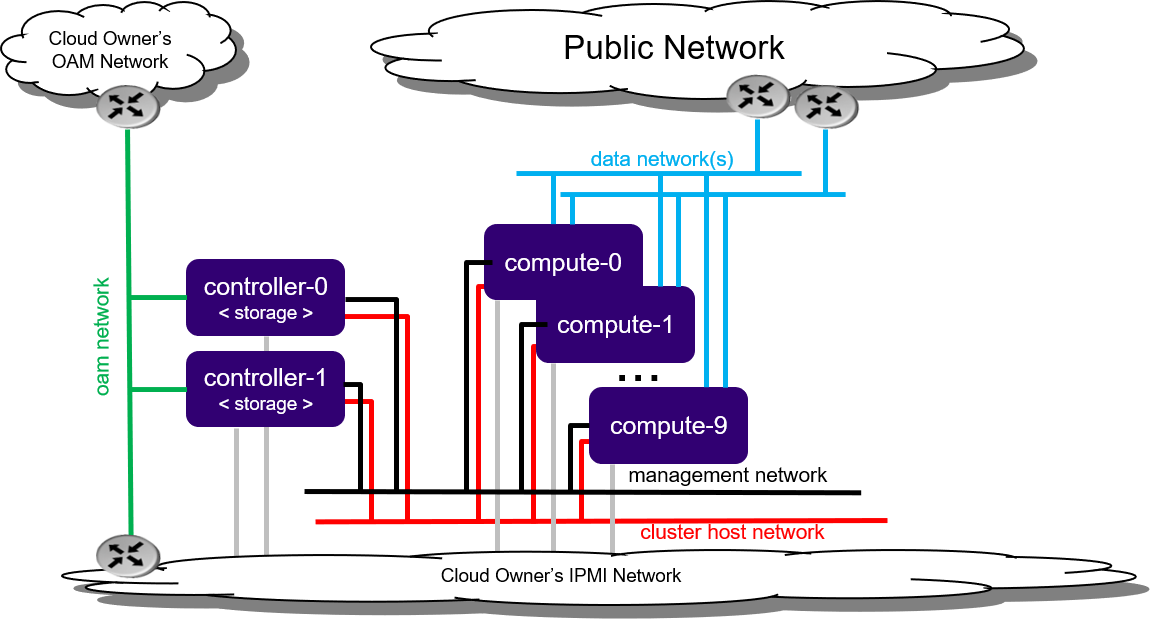Hardware Requirements¶
This section describes the hardware requirements and server preparation for a StarlingX R7.0 bare metal Standard with Rook Storage deployment configuration.
Minimum hardware requirements¶
The recommended minimum hardware requirements for bare metal servers for various host types are:
Minimum Requirement |
Controller Node |
Worker Node for rook storage |
Worker Node for application |
|---|---|---|---|
Number of servers |
2 |
2-9 |
2-100 |
Minimum processor class |
Dual-CPU Intel® Xeon® E5 26xx family (SandyBridge) 8 cores/socket |
||
Minimum memory |
64 GB |
64 GB |
32 GB |
Primary disk |
500 GB SSD or NVMe (see Configure NVMe Drive as Primary Disk) |
120 GB (min. 10k RPM) |
120 GB (min. 10k RPM) |
Additional disks |
None |
|
|
Minimum network ports |
|
|
|
BIOS settings |
|
||
Prepare bare metal servers¶
Prior to starting the StarlingX installation, the bare metal servers must be in the following condition:
Physically installed
Cabled for power
All disks wiped
Ensures that servers will boot from either the network or USB storage (if present)
Powered off
Cabled for networking
Far-end switch ports should be properly configured to realize the networking shown in the following diagram.

Standard with Rook Storage deployment configuration¶
